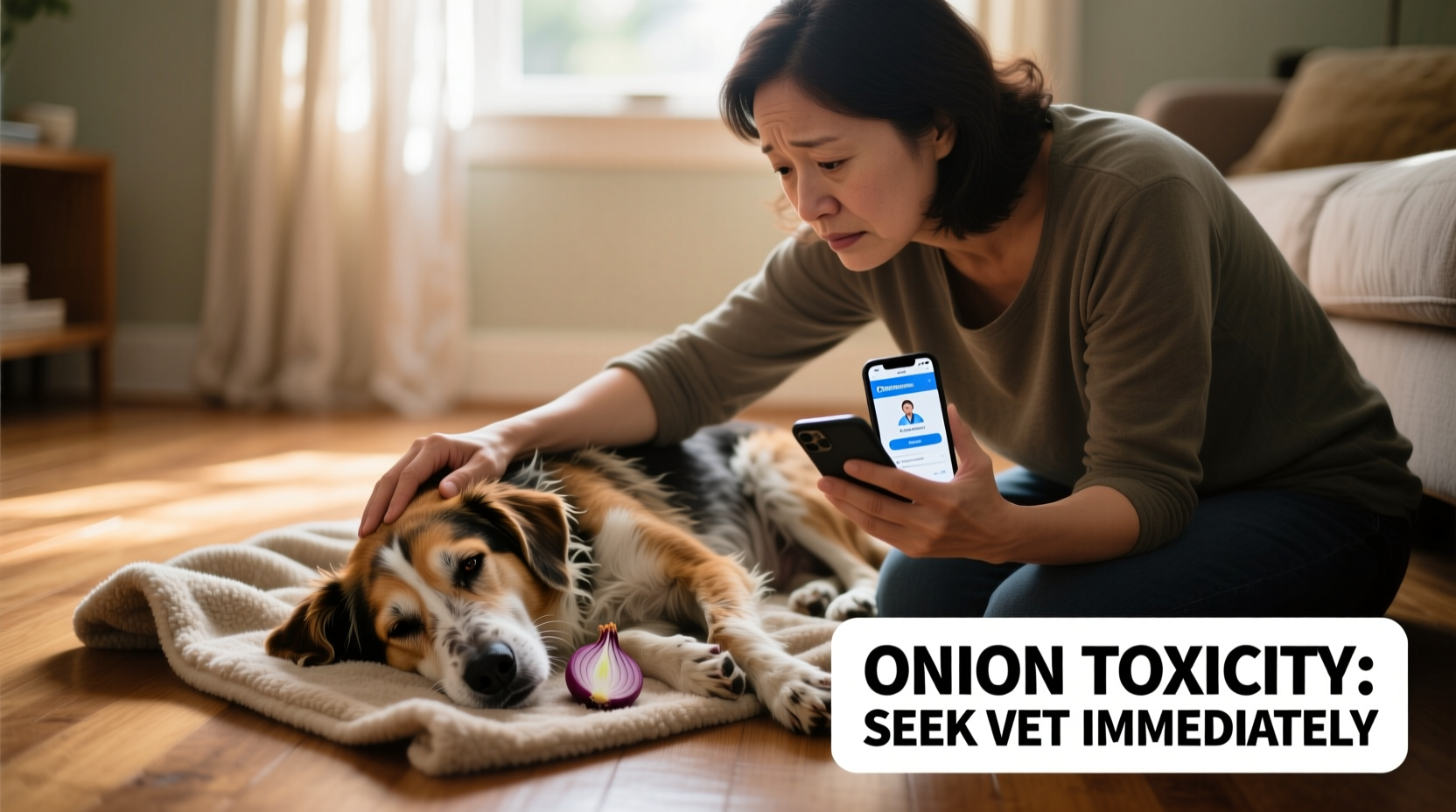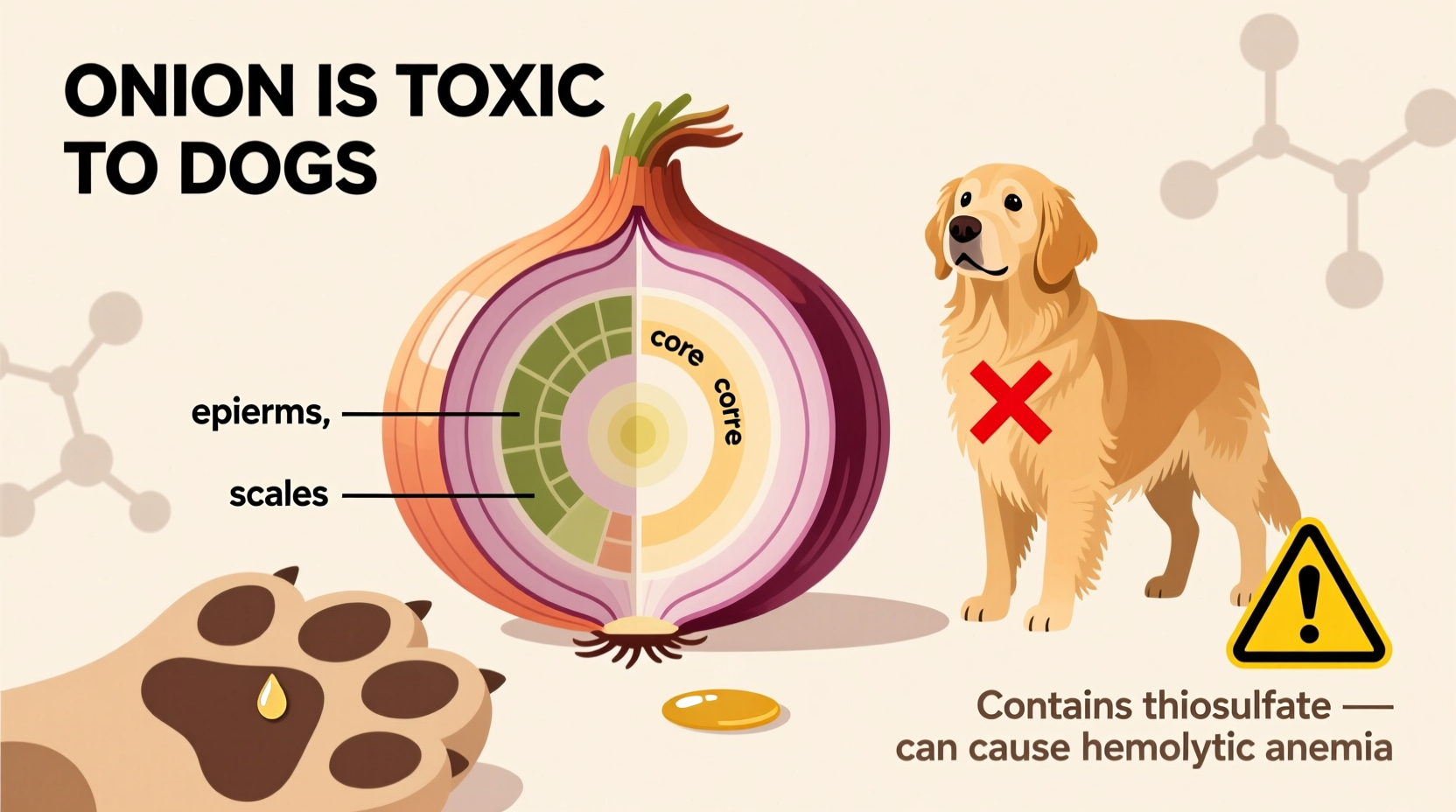If you've ever wondered is onion safe for dogs, the answer is a definitive no. This common kitchen ingredient poses a serious health risk to your canine companion that many pet owners don't realize until it's too late. Understanding onion toxicity in dogs could save your pet's life.
Why Onions Are Dangerous for Dogs
Onions contain a compound called N-propyl disulfide that damages dogs' red blood cells, leading to hemolytic anemia. Unlike humans, dogs lack the enzyme system needed to metabolize these sulfur compounds safely. When red blood cells break down faster than the body can replace them, your dog becomes oxygen-deprived—a potentially fatal condition.
Many pet owners mistakenly believe that cooked onions are safe, but cooking doesn't eliminate onion toxicity for dogs. Whether raw, fried, powdered, or dehydrated, all onion forms remain dangerous. This includes garlic, chives, leeks, and shallots, which belong to the same Allium family.

Symptom Timeline: What to Watch For
Onion poisoning symptoms don't appear immediately. Understanding this progression timeline helps you recognize problems before they become critical:
- 0-24 hours: Vomiting, diarrhea, abdominal pain, and lethargy may occur
- 1-3 days: Pale gums, weakness, rapid breathing, and elevated heart rate develop
- 3-5 days: Dark urine (from hemoglobin breakdown), jaundice, and collapse become likely
- 5+ days: Severe cases can lead to kidney failure or death without treatment
Toxic Dose Thresholds by Dog Size
| Dog Weight | Minimum Toxic Dose | Severe Risk Level |
|---|---|---|
| 10 lbs (4.5 kg) | 0.5 oz (14g) | 2+ oz (56g) |
| 30 lbs (13.6 kg) | 1.5 oz (42g) | 6+ oz (168g) |
| 60 lbs (27.2 kg) | 3 oz (84g) | 12+ oz (336g) |
| 90+ lbs (40.8+ kg) | 4.5 oz (126g) | 18+ oz (504g) |
This American Kennel Club data shows why even small amounts matter—just one medium onion (about 5oz) could seriously harm a 10-pound dog. Remember that onion powder is especially dangerous because its concentrated form means smaller quantities contain more toxins.
Immediate Action Plan: Your Dog Ate Onions
If your dog consumed onions, follow these vet-recommended steps:
- Contact professionals immediately: Call your veterinarian or the ASPCA Animal Poison Control Center (888-426-4435)
- Document details: Note the type of onion, estimated amount consumed, and time of exposure
- Do NOT induce vomiting unless specifically instructed by a professional
- Bring packaging: If commercial food was involved, take it to the vet appointment
- Monitor closely: Watch for early symptoms while waiting for professional guidance
Treatment often involves intravenous fluids, oxygen therapy, and in severe cases, blood transfusions. Early intervention dramatically improves recovery chances—don't wait for symptoms to appear before seeking help.
Preventing Onion Exposure: Practical Strategies
Many dog owners don't realize how easily onion exposure happens. Protect your pet with these practical measures:
- Kitchen safety: Store onions and garlic in closed cabinets, not on countertops
- Meal preparation: Keep dogs out of the kitchen when cooking with Allium vegetables
- Leftovers: Never feed table scraps containing onions, even in small amounts
- Homemade food: Consult your vet before preparing dog food—many "healthy" recipes accidentally include toxic ingredients
- Read labels: Check pet food and treat ingredients for onion powder, which appears in many commercial products
Remember that broths and gravies often contain hidden onion ingredients. When in doubt about any food item, consult your veterinarian before sharing with your dog. Many human-safe foods like blueberries, carrots, and plain cooked pumpkin make excellent, safe alternatives.











 浙公网安备
33010002000092号
浙公网安备
33010002000092号 浙B2-20120091-4
浙B2-20120091-4